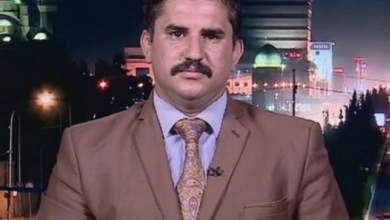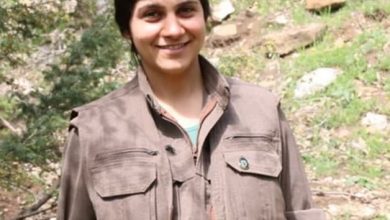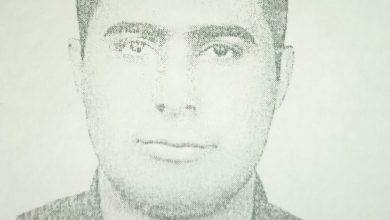Bardiya Abdi, a teenager from Paveh, recounts how he fell prey to these promises amid emotional emptiness and family pressures. The place that was supposed to be a bridge to Europe turned into a cage full of fear and restrictions.
In recent years, militant groups, especially KOMALA, have adopted a new approach to recruitment by utilizing modern communication tools and social media. One of their most common tactics involves alluring promises such as dispatching recruits to Europe, securing a bright future, and providing a release from economic or social problems. These promises appear hopeful and salvational on the surface, but they are, in reality, tools to deceive young people seeking an escape from their current circumstances. The experience of many who have been misled shows that these promises are nothing more than a mirage, and the end of the road often leads to frustration, disappointment, and irreparable damage.
A Defenseless Home: The Ground for Extremist Group Recruitment
Alongside these deceptions, familial and psychological factors play a significant role in the vulnerability of young people. Severe parental conflicts, the absence of emotional support at home, and feelings of loneliness or defenselessness expose youth to an identity crisis and a need for belonging. This environment provides fertile ground for groups like KOMALA to exploit emotional and psychological voids, thereby recruiting adolescents and young adults. In this manner, deep-rooted family problems become intertwined with empty political and migratory promises, leading the lives of many young people astray.
Bardiya Abdi: A Teenager from Paveh
The subject of today’s report by the Iranian Kurdistan Human Rights Watch correspondent is Bardiya Abdi, born on August 28, 2006, in Paveh. He holds a high school diploma (Grade 12) and currently works in the private sector. Due to family disputes, Bardiya connected with members of the armed KOMALA group via Instagram, left home on May 6, 2022, and joined the group in the Kurdistan Region of Iraq. After one month of cooperation and involvement with the KOMALA group, he decided to return to Iran because the promises (namely, being sent to Europe) did not match the reality.
Childhood and Adolescence: A Tense and Defenseless Home
Question: Could you please start by describing your childhood and adolescence? What was your family and living environment like?
Bardiya Abdi: My childhood was full of tension, ambiguity, and confusion. My parents had serious disagreements early on and were mostly preoccupied with their personal issues and arguments. I always felt lost in the middle of it; there was no one to pay attention to me and no refuge to lean on. The house that should have been a place of peace and security felt more like an unstable environment, devoid of affection. Most days were spent either in solitude or among a family whose members were physically present but mentally engaged with other matters. Even when we were together, I felt like no one truly understood me or cared about my wishes and concerns.
Despite all these circumstances, I tried to take my education seriously. Studying was the only path I thought could separate me from the current situation and lead me to a better future. I was motivated to succeed, even without any support from those around me. Days passed one after another, filled with loneliness, uncertainty, and a feeling of being defenseless, yet I was constantly looking for a small glimmer of hope—a way to escape this emotional and family dead end.
The Path to KOMALA: Deceptive Promises and False Hope
Question: Despite these problems, you continued your education. What led your path toward the KOMALA group?
Bardiya Abdi: Yes, I continued my education through high school and managed to get my Grade 12 diploma. My interest in studying and progressing was always there, but after graduation, I was faced with a bitter reality: there was no clear prospect ahead. I had neither a suitable job nor financial support from my family, nor even a safe environment that could provide me with minimal peace. Everything was temporary, fragile, and disappointing.
During this period, I met individuals through the Instagram social network who introduced themselves as members of the KOMALA group. Initially, our communication was very simple—just a few friendly conversations and ordinary questions and answers. But gradually, their tone changed. They began to praise me—my abilities, my diligence, and my interest in education. Then they made promises; they said they could arrange my migration to Europe, help me continue my studies, and even secure a scholarship. When a person is at the height of despair and someone appears who pays attention to them, listens to their words, and even paints a bright future for them, they are naturally tempted. I was the same. For the first time, I felt like someone was taking me seriously and believed in my abilities and future. It was this feeling of being seen and the false hope that gradually steered me toward a dangerous decision.
The Decision to Leave Home
Question: How did the decision to leave take shape? Did anyone from your family or friends know about it?
Bardiya Abdi: The truth is, at that time, there was no one around me who would worry or know about my decision. I was so lonely that no one even asked me why I was choosing this path or what my future would hold.
This lack of support led me to make the decision to leave home alone. Despite the financial problems and lack of basic resources, one of the KOMALA members promised to help me cross the border. He said I wouldn’t need a passport or official documents and that he would arrange everything for me. These promises, which seemed significant and believable to me, convinced me that this was the only way to escape my current situation.
Finally, on May 6, 2022, I left home. I illegally entered the Kurdistan Region of Iraq, with the belief that I was on the verge of starting a new life. My mind was full of thoughts of Europe, studying at prestigious universities, and building a bright future. At that moment, I didn’t know that I had actually stepped onto a path that was not only far from my dreams but full of bitter and disappointing realities.
The Reality of the KOMALA Camp: Freedom or Captivity?
Question: After arriving in the Kurdistan Region and at the group’s headquarters, what conditions did you face?
Bardiya Abdi: The reality became clear to me very quickly. Contrary to the promises I had heard online, as soon as I arrived, I was taken to a closed headquarters and told that I had to undergo training and work as an official member of the group. From the very beginning, they told me that returning to Iran was dangerous and that it was better to stay with them. There was no longer any talk of migrating to Europe, continuing my studies, or a bright future. The environment was one of control, restriction, and fear. Everything was under strict supervision—from daily movements to ordinary conversations. The smallest sign of inattention or disagreement could lead to severe consequences.
Daily life there was completely enforced. I was obliged to participate in military training sessions in the mornings, required to do chores around the headquarters in the afternoons, and remained under control in the evenings. Even to use a mobile phone and send a simple message, I had to ask for permission, and that was under limited conditions. Gradually, I felt that instead of starting a new journey, I was trapped inside a cage where freedom and choice had no meaning. There was no sign of good pay either. I had basically become a free laborer for KOMALA!
Facing Reality: Disappointment and Anger
Question: How did you feel when you realized the promises were lies?
Bardiya Abdi: My feelings were a mixture of fear, anger, and disappointment. On one hand, I knew I was trapped in a situation with no easy way back, and on the other, I fought with myself for why I had so naively fallen for the false promises. I realized very quickly that armed groups were not only unconcerned about anyone’s future but that all their promises were simply a means of recruitment and exploitation of young people. With every passing day, I understood more clearly that what they had told me had no connection to reality. Instead of building a future, my life was being wasted. The sense of hope I initially carried had now been replaced by despair and worry.
A Month of Pressure and Psychological Challenges
Question: What challenges did you face during your one-month presence?
Bardiya Abdi: The most significant challenge was the psychological and emotional pressure. Separation from my family, living in a closed and lifeless environment, enduring difficult military training, and being deprived of free communication all contributed to me feeling increasingly exhausted and worn out every day. Many times, I would cry at night from the intensity of my sorrow and regret, constantly asking myself, “Why did I make this decision? Why did I allow myself to be deceived?” Alongside these pressures, the false promise of migrating to Europe constantly preoccupied my mind. I went to sleep at night with thousands of unanswered questions—questions that gradually turned into nightmares. The most important one was whether I would ever have a chance to escape this situation.
Returning to Real Life
Question: What made you decide to leave the group?
Bardiya Abdi: After about a month, I reached a point where I couldn’t tolerate the situation anymore. I concluded that continuing down this path meant destroying my future and my youthful energy. So, I decided to find a way to return. This, of course, was not easy. First, I had to talk to the group’s officials and submit a request to “settle accounts,” so to speak. I was monitored and questioned for several days until my real intention became clear. I had to prove that I had no intention of betrayal or cooperation with other forces and that my only wish was to return to a normal life. After long negotiations and providing assurances, they finally agreed, and I was able to begin the process of returning to the country.
Question: What was your experience like after returning?
Bardiya Abdi: Returning to Iran was a complex experience for me—a combination of peace and anxiety. On the one hand, I was happy to have escaped the dangerous and restrictive environment of the group, but on the other, I knew a difficult path lay ahead. I am currently working in the private sector, and the living conditions are simple but real. I now know that no false promise can ever deceive me again. This experience was bitter but instructive. It showed me that no group is genuinely concerned with an individual’s happiness or future; they are only looking to exploit their energy and capabilities.
A Message to Youth
Question: If someone like you is considering following the same path, what advice would you give them?
Bardiya Abdi: I only have one sentence: “No group fights for your future; they all just want to use you.” The problems and hardships of life may be huge and overwhelming, but nothing is worth sacrificing your real life for empty and illusory promises. My experience proved that hoping for a lie leads to nothing but destruction.






